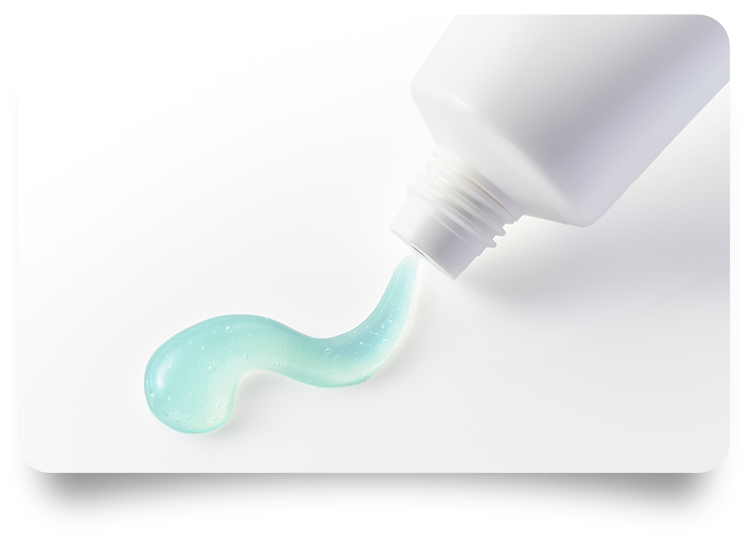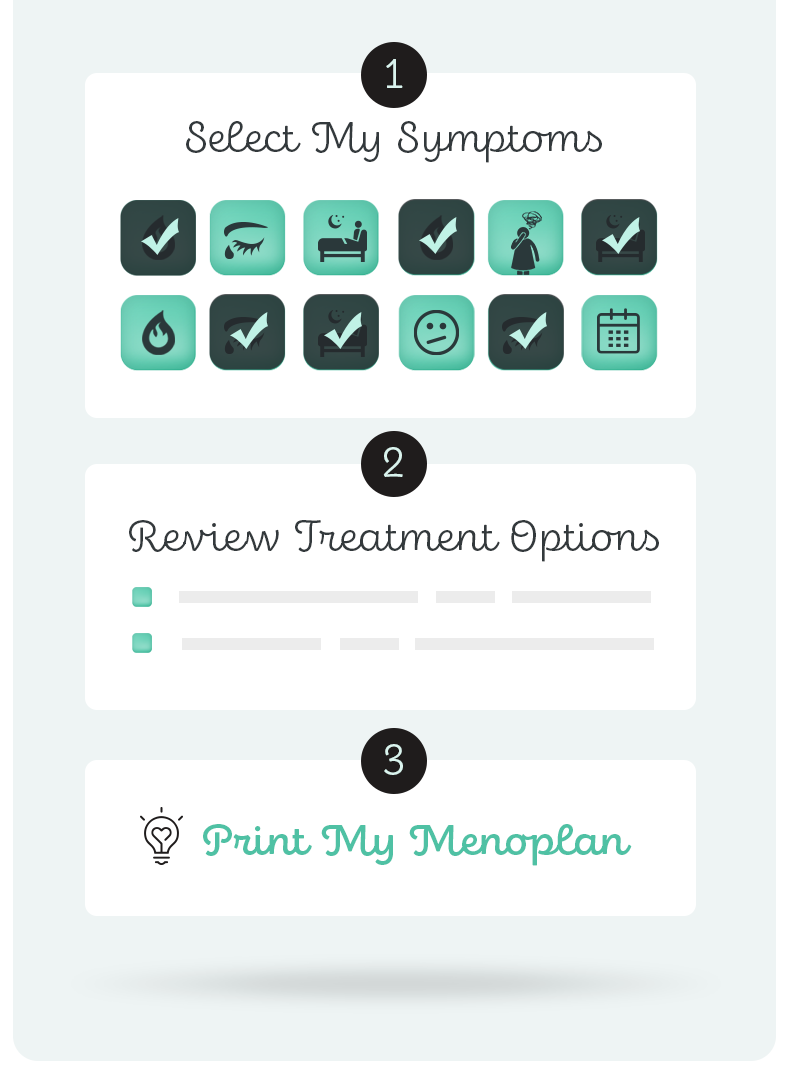Treatments
WHAT IS IT?
Testosterone is a hormone made by the ovaries and the adrenal glands. It is used by some perimenopausal and postmenopausal women to treat low sex drive. Low sex drive is also known as low libido or, more technically, hypoactive sexual desire disorder. Health professionals consider libido to be low when a woman’s decrease in sexual interest has caused her enough concern to seek treatment.
OUR BOTTOM LINE: DOES IT HELP?
YES. A recent panel of experts concluded that current studies support the use of testosterone to improve libido in postmenopausal women. It may increase sexual desire, pleasure, arousal, and orgasm. But the effect is modest – an average of one additional satisfying sexual experience per month.
Using testosterone for low libido in women is considered an “off label” use – it does not have FDA approval in the U.S. In fact, there are no FDA approved products for women with low libido.
The North American Menopause Society recommends trying non-medical ways to cope with symptoms before trying medicines like testosterone therapy. We agree. Since testosterone therapy has some risks, see if a non-medical solution works for you before trying testosterone.

LOW SEX DRIVE
POTENTIAL RISKS & SIDE EFFECTS
Testosterone should be given in doses that raise the testosterone level to the average found in premenopausal women. At these doses the main side effects are mild acne and an increase in facial hair.
There is almost no information about the risks of long-term testosterone use in women (more than 2 years of use). There are hypothetical risks of heart attack, stroke, blood clots in the veins, and breast cancer.
QUALITY OF LIFE EXPECTATIONS
If low libido is a problem, using testosterone may help improve sexual quality of life.
IF I WANT TO TRY THIS TREATMENT WHAT ARE MY NEXT STEPS?
If you are troubled by low libido, talk with your doctor.
- There are many potential causes of this problem – these will be evaluated before testosterone therapy is considered.
- A baseline blood testosterone level should be taken. Your testosterone level should be followed to be sure your levels stay in a normal range.
- If you do not see a change in libido in 3-6 months consider stopping the therapy.
Davis SR, Baber R, Panay N, Bitzer J, Perez SC, Islam RM, Kaunitz AM, Kingsberg SA, Lambrinoudaki I, Liu J, Parish SJ, Pinkerton J, Rymer J, Simon JA, Vignozzi L, Wierman ME. Global Consensus Position Statement on the Use of Testosterone Therapy for Women. J Clin Endocrinol Metab. 2019 Oct 1;104(10):4660-4666. doi: 10.1210/jc.2019-01603. PMID: 31498871; PMCID: PMC6821450.
Elraiyah T, Sonbol MB, Wang Z, Khairalseed T, Asi N, Undavalli C, Nabhan M, Firwana B, Altayar O, Prokop L, Montori VM, Murad MH. Clinical review: The benefits and harms of systemic testosterone therapy in postmenopausal women with normal adrenal function: a systematic review and meta-analysis. J Clin Endocrinol Metab. 2014 Oct;99(10):3543-50. doi: 10.1210/jc.2014-2262. PMID: 25279572; PMCID: PMC5393495.
Glaser R, Dimitrakakis C. Testosterone therapy in women: myths and misconceptions. Maturitas. 2013 Mar;74(3):230-4. doi: 10.1016/j.maturitas.2013.01.003. Epub 2013 Feb 4. PMID: 23380529.
Islam RM, Bell RJ, Green S, Page MJ, Davis SR. Safety and efficacy of testosterone for women: a systematic review and meta-analysis of randomised controlled trial data. Lancet Diabetes Endocrinol. 2019 Oct;7(10):754-766. doi: 10.1016/S2213-8587(19)30189-5. Epub 2019 Jul 25. PMID: 31353194.
Jayasena CN, Alkaabi FM, Liebers CS, Handley T, Franks S, Dhillo WS. A systematic review of randomized controlled trials investigating the efficacy and safety of testosterone therapy for female sexual dysfunction in postmenopausal women. Clin Endocrinol (Oxf). 2019 Mar;90(3):391-414. doi: 10.1111/cen.13906. Epub 2019 Jan 14. PMID: 30488972.
Parish SJ, Simon JA, Davis SR, Giraldi A, Goldstein I, Goldstein SW, Kim NN, Kingsberg SA, Morgentaler A, Nappi RE, Park K, Stuenkel CA, Traish AM, Vignozzi L. International Society for the Study of Women’s Sexual Health Clinical Practice Guideline for the Use of Systemic Testosterone for Hypoactive Sexual Desire Disorder in Women. J Womens Health (Larchmt). 2021 Apr;30(4):474-491. doi: 10.1089/jwh.2021.29037. Epub 2021 Apr 1. PMID: 33797277; PMCID: PMC8064950.
Last reviewed June, 2021



